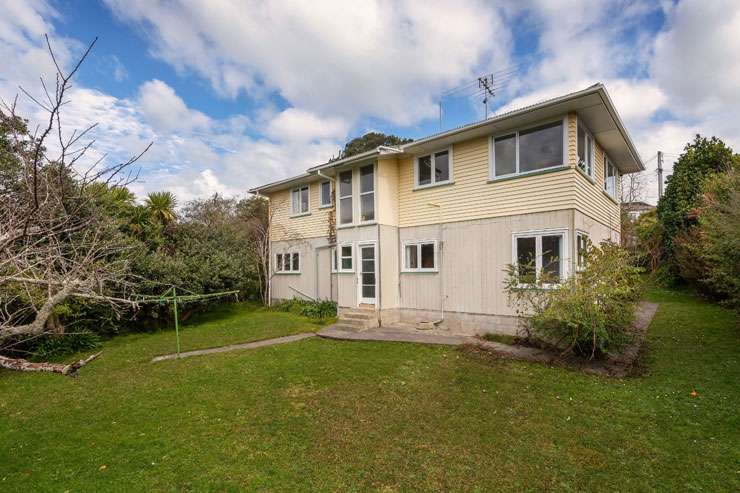The new rating values for homes in three of New Zealand’s biggest housing markets are set to be released within the next two months, and they will likely trigger buying and selling decisions for many Kiwis.
The RVs for Wellington are due to land next week, and for many homeowners in the capital the sums they receive will be big surprise, with the last round of RVs for the city issued in 2018 when the city’s average property value sat around $800,000.
The post-Covid surge has seen Wellington house prices jump more than 50% since then, with the average property value now sitting at just over $1.2m.
Aucklanders are due to get their new RVs – also known as CVs in the city – later next month, after a year-long delay caused by the pandemic. The city’s average property value back in 2017, when RVs were last issued, was just over $1m, now its $1.506m.
Start your property search
Homeowners in Queenstown get their new RV in January, and like homeowners in Wellington and Auckland, they have seen a lot of value gain since the last round of RVs, in 2017, with the city’s average property value now $1.674m.
An RV is often a homeowner’s first and only point of reference for how much their property is worth. Buyers, too, often use RVs to gauge the price points of properties they look at but as market tools go, RVs have their limitations and don’t necessarily reflect sale prices, says James Wilson, head of valuations at OneRoof’s data partner Valocity.
The RV is set by local councils to determine how much owners should pay in rates. Although widely advertised by real estate agents, it doesn’t really tell interested parties what the property will sell for. It can be hundreds of thousands of dollars different from sale prices and dates quickly. Councils only value properties every few years, which is why so many homes are sold for huge sums over the RV.

Wellington's average property value is now over $1.2m. Photo / Getty Images
Peter McKay, principal valuer at Auckland Council, says RVs are “a snapshot at the revaluation date”.
“It is a statistical process, and we value 575,000 properties. We can’t inspect them all, so we recommend that people get private registered valuation reports for buying, selling and getting mortgage funds.”
Other valuation methods first-home buyers will encounter are:
• Automated valuations. Sometimes described as e-valuations, these provide estimated values of a property and are based on a range of data including the sale and rental prices of similar properties, local council valuations and market trends. Some properties are more easily valued than others. For example, OneRoof valuations have a gauge which indicates how much data is available and therefore the expected accuracy of the report.
• Registered valuation. These are often the most accurate estimation of what the sale price might be. The human valuer looks carefully at not just the data but the inside and outside of the property. A registered valuer will have studied for at least three years and worked for three more to provide registered valuation reports.
• Agent estimates. Agents often provide appraisals, which are estimates of a home’s value.
• Insurance valuation. Few people would base the value of a house on their insurance valuation but many use their RV to set a value to insure the home. This could be dangerous because an insurance valuation should be the cost to rebuild if the house burns down or is destroyed in a natural disaster. Most insurance policies will only pay up to this sum for a total loss claim.
A recent example of how these valuations can differ can be seen in the sale of a dilapidated 1960s house in New Windsor, Auckland. It had a 2017 CV of $1.245m, and had been appraised in April as having a value of between $1.02m and $1.44m.
On August 2 the home was valued at $1.5m by a registered valuer, who noted the condition and potential for development. On the week of sale, the automated online value ranged from $1.525m to $2.195m, although viewers expected the home to sell at the low end of that range. The house sold at auction on November 3 for $1.536m.

Valocity director of valuations James Wilson says valuations are an art, not a science. Photo / Supplied
The data in automated valuation models is often quite accurate, says Wilson. “There is no right or wrong to this. The range does vary based on the property type. For example, is it a stock standard 1950s residential home in a street of similar properties, or is it a $15m clifftop property in Herne Bay with few properties to compare it to? Based on that, the range varies quite significantly.”
Valuations, he adds, are an art, not a science. Properties can sell for more or less than the valuation for a number of reasons that include:
• The number of similar properties for sale in the area;
• The level of competition and emotion in the auction room, if the property is being sold under the hammer;
• Whether or not the market at the time of sale is favourable to buyers or to sellers;
• The development potential of the property, with large sections zoned for terrace houses or apartments often more valuable to certain buyers.
Buying a property at auction if a registered valuation is needed can be painful for a buyer. Sometimes they pay for valuations but lose at auction.

This Auckland property was appraised as having a value of between $1.02m and $1.44m. It sold for $1.536m this month. Photo / Supplied
But valuations can’t be avoided. The bank may need a registered valuation but depending on what the buyer or homeowner wants to use the valuation for, an automated report might be sufficient.
The banks use these to ensure they’re not lending too much on a property, says Wilson. Buyers borrowing more than 80 per cent may also be required to get a registered valuation to lessen the bank’s risk. The risk: if property values fall, buyers may be left owing more than the property is worth and walk away. If the bank can’t sell the home for more than the outstanding mortgage, it may end up making a loss.
Dr Arshad Javed, Senior Lecturer in Property at Massey University, was part of a team that published research into the accuracy of property valuations in the Australian market. Similar factors affect the New Zealand market, he says.
The Factors Influencing Property Valuation Accuracy survey reported that valuation was complex and dynamic, yet key to the efficient functioning of the property market and required for a variety of decisions concerning issues such as transfer of ownership, mortgage underwriting, insurance risk assessment and financial reporting.
“Consequently, the ability of valuers to provide reliable and accurate valuations should be a concern to both users and producers of property valuations,” the team wrote.

Queenstown homeowners are due to get their new RVs in January. Photo / Getty Images
A variation of up to 10% was generally acceptable, they noted. Above that, the valuer could be liable for negligence. They noted that the degree of property valuation inaccuracy experienced in the Australian property market was usually beyond the acceptable threshold and recommended ways to overcome this.
The research listed 20 factors that can influence property valuation accuracy. The top five were in order:
1. Inexperience of registered valuers
2. The selection, interpretation and use of comparable evidence in property valuation exercises
3. The complexity of the subject property in terms of design, age, material specification and state of repairs
4. The extent of clients’ pressure
5. Inadequate time for property inspection
Asked about client pressure, Wilson says that is always going to be a factor. “It's really emotional. It’s worth a lot of money. If you’re looking to borrow money to buy a house (the valuation) might impact on what you could do with it.”
Despite that there are remarkably few complaints to the Valuers Registration Board. “The process that anyone has to go through is really robust,” says Wilson. “A registered valuation report can be a 30- or 40-page document for a standard residential property.
“There are all sorts of standards which govern what [valuers] do and how they report. What that means is, while people might not like the assessment of value, if the process has been followed robustly and therefore the assessment is in line with the market, it becomes quite difficult to justify [a complaint].”











